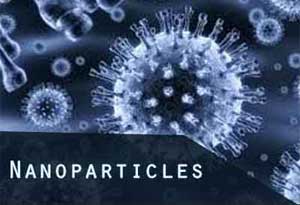- Home
- Editorial
- News
- Practice Guidelines
- Anesthesiology Guidelines
- Cancer Guidelines
- Cardiac Sciences Guidelines
- Critical Care Guidelines
- Dentistry Guidelines
- Dermatology Guidelines
- Diabetes and Endo Guidelines
- Diagnostics Guidelines
- ENT Guidelines
- Featured Practice Guidelines
- Gastroenterology Guidelines
- Geriatrics Guidelines
- Medicine Guidelines
- Nephrology Guidelines
- Neurosciences Guidelines
- Obs and Gynae Guidelines
- Ophthalmology Guidelines
- Orthopaedics Guidelines
- Paediatrics Guidelines
- Psychiatry Guidelines
- Pulmonology Guidelines
- Radiology Guidelines
- Surgery Guidelines
- Urology Guidelines
New smart nanoparticles may help treat cancer: study

Scientists have developed 'smart' self-regulating nanoparticles which heat up to a temperature high enough to kill cancerous cells, while too low to harm the healthy tissue.
The self-stopping nanoparticles developed by researchers from the University of Surrey in the UK could soon be used as part of hyperthermic-thermotherapy to treat patients with cancer, researchers said.
Thermotherapy has long been used as a treatment method for cancer, but it is difficult to treat patients without damaging healthy cells.
However, tumour cells can be weakened or killed without affecting normal tissue if temperatures can be controlled accurately within a range of 42 to 45 degrees Celsius.
"This could potentially be a game changer in the way we treat people who have cancer," said Professor Ravi Silva, Head of the Advanced Technology Institute at Surrey.
"If we can keep cancer treatment sat at a temperature level high enough to kill the cancer, while low enough to stop harming healthy tissue, it will prevent some of the serious side effects of vital treatment," said Silva.
Scientists, including those from the Dalian University of Technology in China, created the nanoparticles which, when implanted and used in a thermotherapy session, can induce temperatures of up to 45 degrees Celsius.
The zinc-cobalt-chromium (Zn-Co-Cr) ferrite nanoparticles produced for the study published in the journal Nanoscale are self-regulating, meaning that they self-stop heating when they reach temperatures over 45 degrees Celsius.
The nanoparticles are also low in toxicity and are unlikely to cause permanent damage to the body, researchers said.
"Magnetic induced hyperthermia is a traditional route of treating malignant tumours," said Wei Zhang, associate professor at Dalian University of Technology.
"However, the difficulties in temperature control has significantly restricted its usage.
"If we can modulate the magnetic properties of the nanoparticles, the therapeutic temperature can be self- regulated, eliminating the use of clumsy temperature monitoring and controlling systems," Zhang said.

Disclaimer: This site is primarily intended for healthcare professionals. Any content/information on this website does not replace the advice of medical and/or health professionals and should not be construed as medical/diagnostic advice/endorsement or prescription. Use of this site is subject to our terms of use, privacy policy, advertisement policy. © 2020 Minerva Medical Treatment Pvt Ltd